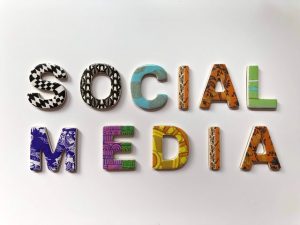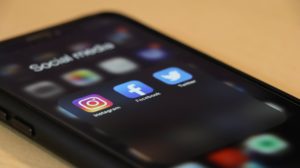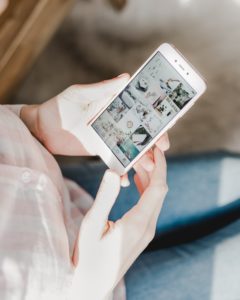Maintaining Your Self-Esteem While Swiping and Scrolling


It’s been months since we’ve been living the lives we are used to, hustling and bustling all about, living our best lives. Lately though it seems that most of us have been spending a little more time than usual with our heads buried in our phones. What was perhaps meant initially to be a leisurely activity used for the purpose of entertainment has grown into an addiction of sorts for some.
Originally, social media was meant to bring us together, keep us connected and to be used as a platform to share our art. However, with the creation of the “Like” button the algorithm took over. Social media algorithms are complex computer systems that can not discern between fact and fiction, prioritizing what it deems to be popular. We all know that popularity is a major draw for us starting in our junior high years. It is basic human nature to want to be liked by others, even if we don’t like them. We find ourselves second-guessing our appearance, actions or even our political views based on the approval of those around us. With social media becoming popular in the last decade or so, being liked has literally turned into something quantifiable, causing a massive drop in self-esteem as well as the emergence of cyberbullying.
Social media can be the cause of emotional distress if we let it drag us down that path. It’s unfortunately easy to do! The use of social media such as Instagram, Facebook, and Twitter have taken a toll on the mental health of the average person and a huge increase in FOMO (fear of missing out). Scroll, compare, scroll, is a part of our daily routine these days which ultimately leads to the feeling of unhappiness, discontent, and anxiety about if we are good enough. We ask ourselves questions like:
“What am I doing wrong with my life?”
“Why are all my friends so happy?”
“Am I on the right path?”
“How is everybody affording a vacation?”
At our worst, we can begin to obsess over obscure details until we lose the ability to find joy and beauty in our own lives despite the fact that we all know very well by now that social media is nowhere near real life. It’s simply a snapshot in time of a random moment that most people fake in order to appear on top of the world. Social media is now designed to be addictive, tricking our brains into releasing dopamine when given new information and positive reinforcements. It is made to hold our attention by keeping us online for as long as possible. Social media is filled with influencers whose job is to have an aesthetically pleasing life in order to market products. Their photos are extensively edited and many times their clothes and environments are curated or even rented. In other words, fake (shhh don’t tell them we said that)!
SOME THINGS WE CAN DO TO LIMIT THESE DISCOURAGING FEELINGS:
- Follow artists and creators instead of models and influencers: follow those who life you up and unfollow those who spark unhealthy social comparison
- Limit the amount of time spent online: moving from the embarrassing 3-5 hours a day down to 1 hour split across the day seems reasonable (albeit difficult)
- Turn the phone off at night: we’re suppose to be sleeping anyways right
- Avoid “doom scrolling” on news topics: this is a no-brainer, not one of us is improved by this activity
- Repeat positive affirmations on a regular basis: a minimum of once a day is recommended
- Have a “no phones allowed” meal-time policy: another no-brainer here folks, just bringing it back to real human interaction
When scrolling, swiping and spending time online, it is most important to remember we are all human. We each have our own complex lives filled with ups and downs that not everyone sees. It’s ok to share our success but it is also ok to share when we are feeling down. More often than not our friends are feeling the same. There is no need to feel as if we have to compete for the best-looking life and the reality is that reality will not likely be found online.


